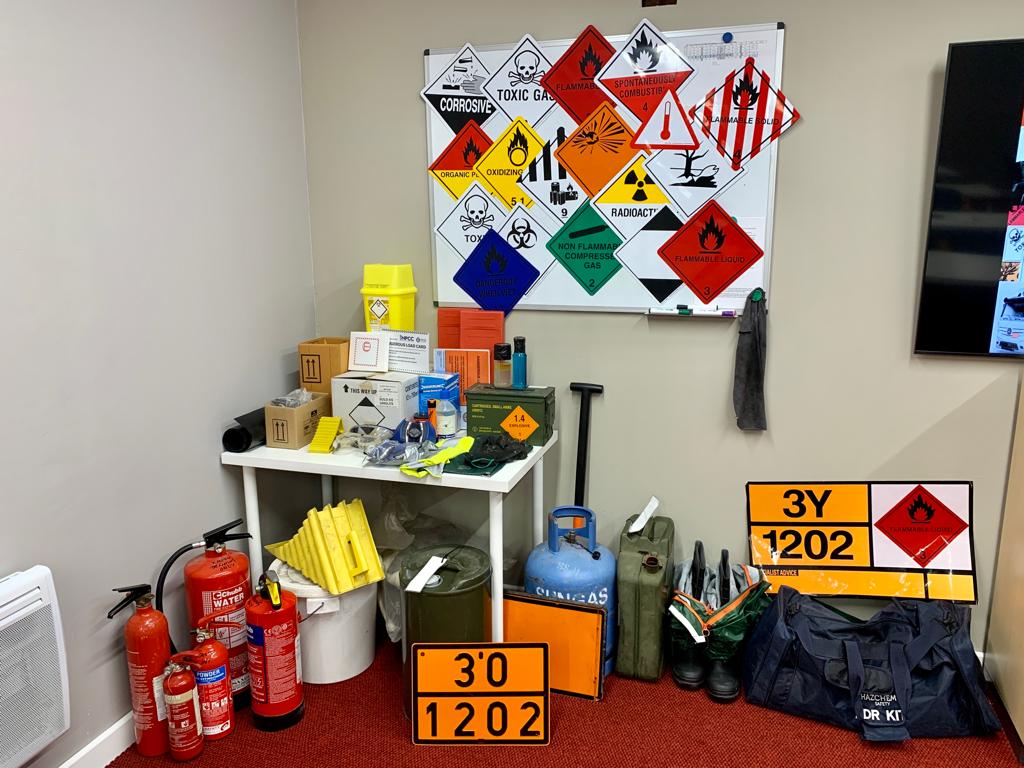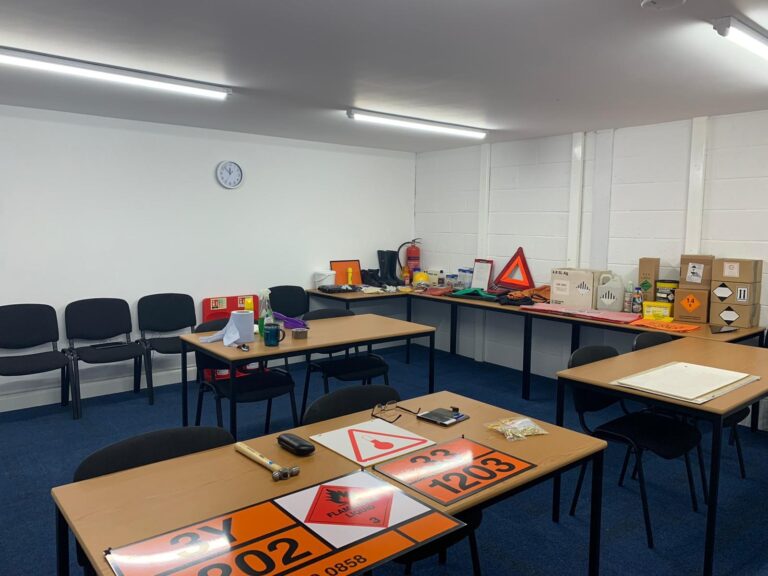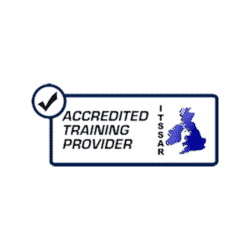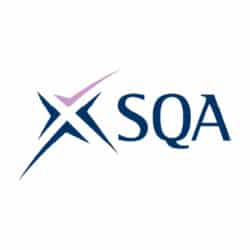
ADR Awareness
The ADR awareness course is designed to meet the needs of those who don’t work with raw hazardous goods, but must understand the key principles of dealing with products which could become hazardous when exposed to another element.
- Upon completing this course, you should be able to:
- Understand the importance of ADR Awareness
- Know basic emergency procedures
- Understand the importance of keeping within load thresholds
- How to store and segregate certain products which may contain a hazardous compound
- Know why it is important to properly pack and label dangerous goods
Course Enquiry Form

What’s Included
- Gain Insight into the threshold and limited quantities of dangerous goods
- Learn from industry experts
- Gain 2 Start certificate of completion upon passing your training
Course Modules
The ADR awareness 1-day course will include:
- Why ADR awareness is important and who does it apply to
- Health and Safety brief
Identification of classes
- Understanding what labels are for what classes. Also being able to identify what type of dangerous good is what class
- This can also include the fire triangle and how that is important to understand.
Emergency procedures/PPE/ Basic first-aid & fire extinguishing
- This can be from how to treat someone with burns, to how to operate a fire extinguisher and what equipment is needed in the building to help prevent the spread of a dangerous good becoming hazardous to individuals.
Load threshold and limited quantities
- What these are identified as and why they are important
- Instances if the load threshold is exceeded
- Understanding how certain products mixed together could become dangerous/harmful to the environment/others
- This will show common household products that, when combined, can cause corrosiveness, explosion, toxic gas etc.
- Could also reference HSE classifications, which details how medicines and cosmetics tend to have small quantities of dangerous goods.
Storage & segregation rules
- See HSE- Segregation of hazardous materials
- Also relating to the 800ml / 80cm legal requirement between pallets.
- Difference of palette sizes- (A euro palette is 800mm wide, whereas a UK palette us 1000mm wide)
- Understanding the importance of properly packed and labelled dangerous goods
This ADR Awareness 2-day training will encapsulate everything in the 1-day awareness training and then include:
The responsibilities of the individual who is working with dangerous goods underneath the ADR limit
- How the below threshold can still be a danger- also depending on the class being transported below the threshold.
What to do in the event of a dangerous good package being damaged
- Primarily for those receiving packages, such as when to refuse a package
- This could be from cartons, to drums and cylinders
- Also considering spillages, environmental problems that could be a factor
- Packages for certain types of dangerous goods (vapours, liquids etc)
Enforcement of dangerous goods regulations for transport by road
- How to avoid the risk of penalties and comply with the legal framework
Risk assessments
- Reference to HSE-Risk assessments
- This can also include understanding forms and documents in relation to the dangerous good and how it should be filled out (also including what to do in the event of the forms being completed incorrectly)
Where to find information on hazards regarding dangerous goods
- Giving the students a list of resources to fall back to if they are ever unsure about the situation regarding a hazard in the work place.
The end of the training will result in a test given to the students, who upon completion, if passed, will receive a certificate of competence to show that they have recognised the training and can implement their learning when needed.
Course Benefits
NDGTC Accredited Training Centre
Experienced Instructors
Air-Conditioned Classrooms
Course Durations
1 Day
2 Day
Durations available for this specific course.
Course Requirements
ADR awareness is a necessary requirement if you meet the criteria for who those who either come into contact with dangerous goods, such as the packing, handling & loading process, or are involved in the process of carrying dangerous goods, but are not in the need of a fully certified ADR training course
Anyone who falls within the ADR exemptions of below the thresholds should complete training to gain an understanding of the risks posed.
Ongoing Requirements
ADR awareness isn’t a legal requirement. However, if you meet the criteria for who this course is for, then it must be in your best interest to keep updated by refreshing your training for ADR awareness.
Test Requirements
The end of the training will result in a test given to the students. Upon completion, if passed, will receive a certificate of competence.
This will show that they have recognised the training and can implement their learning when needed.
Further Training
Refresher training is advised as and when necessary for yourself, or staff who you believe need to complete refresher training (1-day awareness).
If you are going to transport, handle, package or move dangerous goods over the threshold or limited quantities, then you are required to complete ADR training to obtain your ADR licence. You can complete ADR training for core (a compulsory requirement) as well as packages or tanks. You can also choose to complete Class 1, 2, 3, 4, 5, 6, 7, 8 or 9, depending on what you are in contact with.
Earning Potential
Reputable Salary Checkers estimate the following for an ADR certified driver across the South Coast:
While all efforts have been made to ensure the accuracy of this information, we suggest conducting your own research and use these figures for information purposes only.
- ADR Drivers in Hampshire averages £41,271 per annum
- ADR Drivers in Reading averages £41,219 per annum
- ADR Drivers in Brighton averages £43,300 per annum
- ADR Drivers in Portsmouth averages £34,731 per annum
- ADR Drivers in Theale averages £40,192 per annum
Salary expectation depend on the job role you are in. This is because there are so many different individuals who can complete ADR awareness training. From completing this course as a warehouse operative, to someone who loads a vehicle with products.
Who is this course for?
ADR awareness training is for those who:
- Come into contact with dangerous goods, such as the packing, handling & loading process
- Are involved in the process of carrying dangerous goods, but are not in the need of a fully certified ADR training course
- Anyone who fits within the ADR exemptions
Anyone who is required to have the full ADR Vocational certification must complete an ADR course relevant to their needs, as our awareness training only looks at the basic principles for those who could come into contact with low risk, low quantity products.
What can I drive with an ADR awareness certification?
ADR awareness doesn’t permit you to drive any vehicle as such, as it provides you with an understanding as to the potential risks for transporting goods below the threshold. If you are going to transport good below the limit, you may require Heavy Goods Vehicle (HGV) licence, such as for a 7.5 tonne van.
What will you receive upon successful completion of this course?
Once you complete this course, you will be awarded an in-house certificate of completion.
This will show that you have:
- Understood the importance of ADR Awareness
- An understanding of the basic emergency procedures relevant
- Gained knowledge regarding the importance of keeping within load thresholds
- Insight in how to store and segregate certain products which may contain a hazardous compound
- Understood why it is important to pack and label dangerous goods properly
Frequently Asked Questions
What is ADR awareness training?
ADR awareness training provides individuals with knowledge about the various methods of resolving disputes outside of traditional litigation, such as mediation, arbitration, and negotiation. The training helps participants understand when and how ADR can be used effectively to resolve conflicts in a timely and cost-effective manner.
Why is ADR awareness training important?
ADR awareness training is important because it equips individuals with skills to handle disputes efficiently, reduce legal costs, and promote amicable solutions. It also helps organizations minimize the time spent on court proceedings and encourages the use of alternative, collaborative approaches to resolving conflicts.
Why Choose 2 Start?
Reputable
High Pass Rates
Established in 2008
Industry Leading Training Provider
Independently Owned
6 Dedicated Training Centres
VIEW COURSESTrusted
4.9 Star Rating on Google Reviews
DVSA Approved 3a Examiners
DVSA Approved Test Centres
APAR Approved Training Provider
RLI Certified LGV Instructors
BOOK NOWAccredited
Accredited Instructors & Courses
Regular Accrediting Body Audits
Exceptional Audit Pass Marks
Listed With 9 Accrediting Bodies
Verifiable Accreditations
THE TEAMOnly logged in students who have purchased this course previously may leave a review.











Reviews
There are no reviews yet.